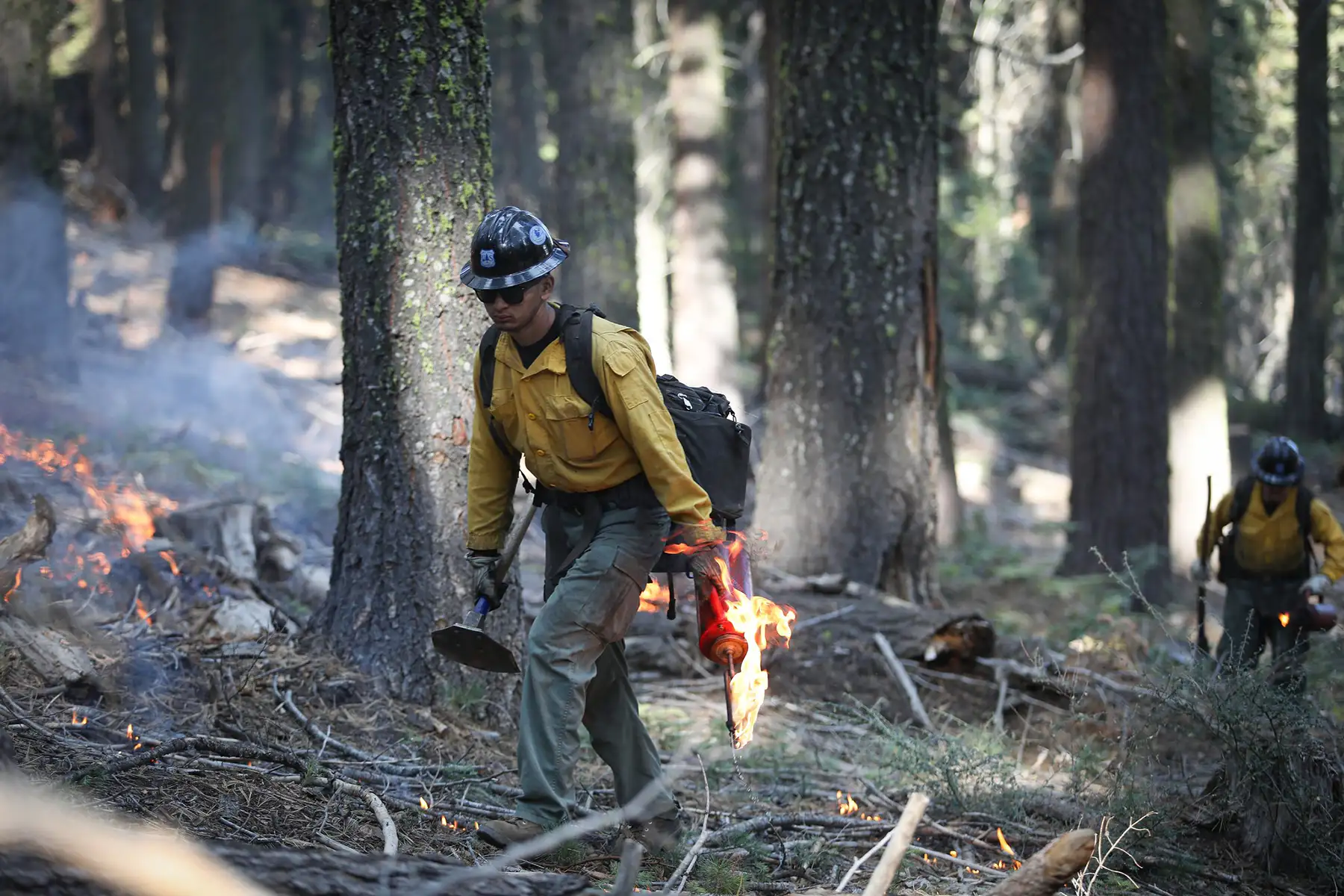Forestry
What is forestry?
Are you drawn to Colorado’s massive network of forest land in both rural and urban settings? Do you care about the plants and wildlife that live there? You might enjoy a career in forestry where you’ll:
- Learn how to develop and evaluate forest and fire management plans
- Provide technical assistance or ways to keep our forests and grasslands healthy
Examples of careers
- Campground Maintenance
- Trail Crew
- Wildland Firefighter
- Forestry Technician
- Plant Protection Technician
- Arborist
- Silviculturist
Skills
Leadership and supervision
Ability to lead and direct crews or teams in various tasks related to wildland firefighting, fuels management, timber program support, recreation management, and tree maintenance.
Safety and risk management
Understanding of safety protocols and practices related to wildland firefighting, tree climbing, equipment operation, and pesticide application.
Fieldwork and physical fitness
Capability to perform physically demanding tasks in outdoor environments, including hiking, climbing, operating equipment, conducting surveys, and implementing field projects.
For more information about job levels, career paths and training programs, visit My Colorado Journey.

Day in the life

Suppress fires
Plant seedlings
Research habitats
Harvest timber




Images provided by the US Forest Service

Career spotlight: Assistant staff forester

What they do
Foresters learn how to manage forested land at a broader scale but can also help individual homeowners learn about trees on their property. Firefighting, working at a nursery or being an arborist are all roles someone in forestry could have throughout their career.
“Trees have been very good to me. I tell young people to do what you love and you will never tire of going to work,” said Colorado State Forest Service Assistant Staff Forester Vince Urbina.
Skills and education check
A love for plants, science and the forest ecosystems are key to working in forestry. Skills, training and certification are crucial to entering this field. Some jobs require an associate’s degree while you might have the opportunity for more specialization with a bachelor’s degree.